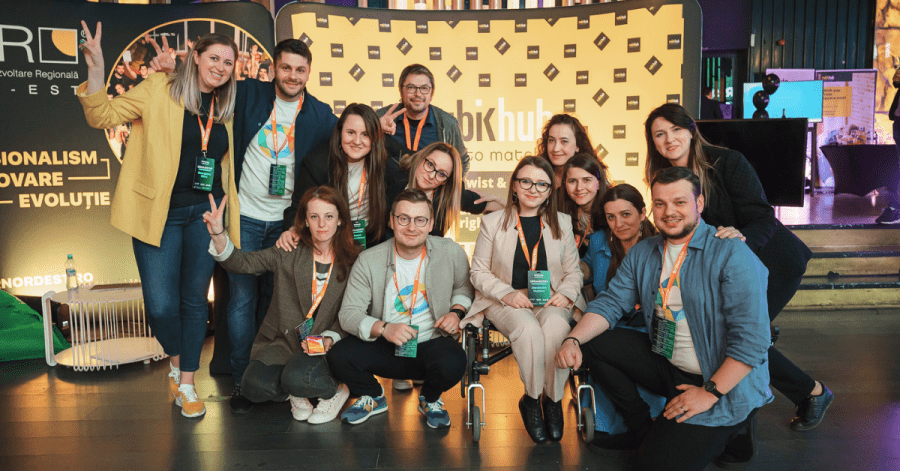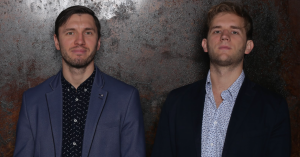After 230 co-founders, 100 startups, 400 students and 130 mentors engaged at a local, regional, and international level, Rubik Hub, the startup ecosystem builder based in Piatra-Neamt, Romania, is getting ready to scale its model globally. With the latest edition of the Rubik Garage accelerator program, the team validated some new hypotheses. On the one hand, their expertise preparing regional founders to build solutions for global markets can apply to international startups. On the other hand, Romania’s fast development in recent years makes it an appealing learning hub, as well as a promising market for international founders.
While talking to Vlad Gliga, the co-founder and CEO of Rubik Hub, I got transported back to five years ago, when, as Vlad says, “there were only a handful of startups around and we all knew them”. It must have felt lonely. Risks must have seemed bigger. Failure must have felt terrifying, as there were few people to share it with.
Vlad decided to not stand idly by. He had been inspired by the values and skill sets he witnessed in his experiences studying and working abroad, and decided to bring them home, to help turn Romania into a thriving startup ecosystem. For Rubik Hub, going international was in the cards from the start. I guess what Vlad didn’t anticipate was that it will all happen so fast.
Today, The Recursive takes you on a trip through the evolution of the Romanian startup ecosystem, as seen through the lens of Rubik Hub, one of the first ecosystem builders in the country, formally part of the North-East Regional Development Agency.
Vlad Gliga shares how the project was born, how it assists founders at all stages via specific programs, and what the next international stage entails. We also talk about the power of collaboration and partnerships, making investment more “human”, being kind and respectful to each other, and his red flags for the period ahead.
The Recursive: What about the entrepreneurship ecosystem and your trajectory at the time convinced you to join the North-East Regional Development Agency in 2015 and soon after launch its child project, Rubik Hub?
Vlad Gliga: In 2013, I attended an MBA program in Denmark, the only one focused on sustainability at the time. My Master’s thesis was “Reasons for the USA medical staff shortage, which can lead to poor medical services”, and to conduct my research, I spent three months in the USA at the “Mayo Clinic” Hospital, where my main activity was interviewing medical staff. I discovered that the leading blocker was that a medical staff person, nurse or doctor, has to spend 50% of the work time on non-medical work. This is a situation where software and automation could help a lot, giving more medical time back to the medical staff. And this was my first interaction with technology as a solution for society’s critical needs.
After graduation, I returned to Bucharest and joined a medical project. I was willing to help a prestigious neurosurgeon doctor establish a minimally invasive neurosurgery clinic in Romania. Dr. Mindea had left his position as Director of Neuro/Spinal Oncology Surgery at Stanford University Medical Center to develop a new technique at that time in Romania. His willingness to give back to his home country got me “infected”.
I was scouting for financing options for launching the clinic, time when I’ve had the opportunity to met Mr. Vasile Asandei, the General Director of the North-East Regional Development Agency (RDA NE). Our first interaction was not a love story at first sight. I learned that RDA NE was leading RDA in Romania in EU funds absorption, a fact presented with pride by the General Director, and for good reasons. But for me, it was frustrating that the general situation of the region hadn’t changed much since I left 10 years prior, with all the money that we’ve successfully managed to attract in the region thanks to the great efforts made by the whole RDA NE organization.
My observation was that without education, an engaged ecosystem, and a strong community spirit, it is impossible to keep talents here and grow economically as an ecosystem, no matter how much money you bring from EU sources. We need to put the EU money to work and multiply it, not burn it at a high and inefficient rate. So, we have to switch our mindset and approach from encouraging the creation of projects designed (just) to use the EU money towards developing projects that are creating value and are delivering solutions for the benefit of the entire world, using EU money.
Yes, we have challenges, such as poor road infrastructure, the disappearance of traditional industry, and a high emigration rate. But we also have strengths . We have some of the best tech talents and internet infrastructure in the world. And we went through difficult times, so we have the exercise to deal with problems and at the same time to overcome them. Why not give value to these assets and complain less, but build more?
That was the last rhetorical question I left on Mr. Asandei’s desk. Of course, I had nothing to lose and felt excellent sharing my worries and vision, but I also believed it was our last conversation. Bursting during a first casual talk can be a relationship killer. Still, amazingly, after two months, I got a phone call from Mr. Asandei, who was visiting Bucharest, and was willing to continue our talk. This was the beginning of our common efforts to put Romania on the global map of thriving economical global ecosystems, RDA NE was willing to commit to developing the region in other ways necessary than just deploying EU money. It was music to my ears!
And yes, there’s a selfish component, too. I want my kids to have everything they need to reach the best version of themselves and drive positive impact, in Romania. The people and the way the society interacted in the places I studied and worked have educated and challenged me to grow. What if we bring the best from abroad, adapt it to local needs and particularities, and start building on our strengths to help young people find their best versions and drive positive impact?
The approach I had in mind was to increase Romanians’ entrepreneurial abilities and build a collaborative spirit for a better and faster learning experience, especially for those at the beginning of the journey. Therefore our mission at Rubik Hub became to bring people together, to develop and connect communities with whom we inspire, educate, and accelerate startups, to create successful global businesses.
This is how Rubik Hub started. Why the name “Rubik”? Because initially, we were like a scrambled Rubik’s Cube, where we didn’t know about each other, didn’t collaborate, we were lonely and alone. These are the reasons why many of us have left the country. So we had to do something about it and build faces of the same color, interests, and values.
Why do we help founders to build global businesses and not just local ones? Because Romania is struggling to grow economically, and one of the levers of growth is increasing exports versus imports. Therefore we aim to have more startups in Romania delivering global solutions and capitalizing on this by bringing financial value back to the country, increasing its GDP and power to invest in its growth.
How would you describe the evolution of the startup ecosystem since you launched Rubik Hub?
Five years ago. It sounds like such a long time ago. Back then, we knew each and one of the handfuls of startups Romania had at that time. We were the same people at all the events. Today, we meet new startups each week that come and pitch. At events such as How to Web or Techsylvania, we meet new people, startups, mentors, and investors. This is a significant change from 5 years ago. And we meet not just new Romanians but successful Romanians living and working abroad or international startups, investors, and mentors. We’ve become a noticeable and representative startup ecosystem!
Therefore, I am thrilled with the growth of our ecosystem. I am super proud and grateful for what we have today. The number of founders has increased significantly. Great job, Romania! It was essential to have this growth not only in volume but also in the quality of founders. Startups are light years ahead from a few years ago. In turn, this has significantly improved other results, such as investment deals per year, size of the investments, the number of active VCs (from Romania and abroad), startups scaling internationally, startups receiving foreign investment, and so on.
Today, how can Rubik Hub assist entrepreneurs at different stages?
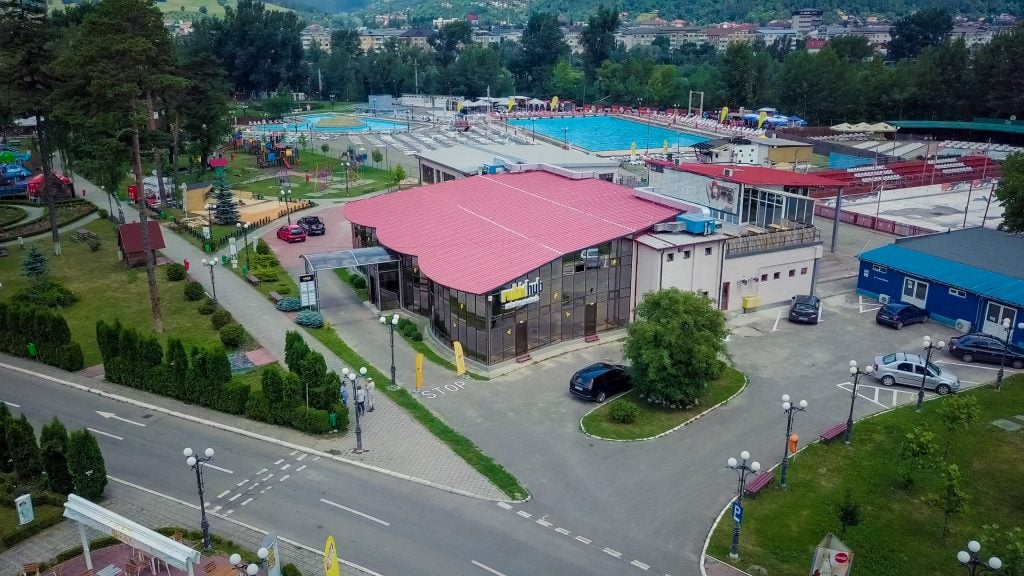
In a nutshell, we have 3 key elements that make our mission possible: the TEAM, the community of mentors and the programs designed to succeed as a natural journey for a founder, from idea to investment and scale up.
The Team. We are today 14 dreamers and doers, working as a whole, aligned by our 3 core values: focus on impact, find solutions to problems and deliver, growth mindset. It is not a single player game! Our “holacracy” management approach gives to each team member autonomy, and creative problem-solving capacities, so Rubik’s Hub results are the results of teamwork.
The Community. In our early days we believed Romania needed better profiles of people that we should follow and learn from. What was portrayed as role models did not match our values, therefore, we wanted to expose the young generation to people with knowledge, experience and at the same time a strong set of values. We give a serious amount of time and energy to select, attract and keep our dear community of mentors engaged – these are people who we believe should be role models for the young generation. Our mission has inspired over 150 mentors to join our community and give their support in helping startups grow.
The Programs. From the beginning, we dreamed of having a large-scale impact. Therefore we analyzed how we can build, enlarge and support the funnel of people willing to test and follow the entrepreneurship path.
As an ecosystem, we must first inspire people to take this route and join the funnel; therefore, we have events and short programs that aim to spark the interest of young future entrepreneurs. During the INSPIRE stage, we want to present strong reasons why you should build on your idea and transform it into a sustainable business. We do this by including the students in a safe and inclusive community where mentors with solid professional backgrounds come to help, answer questions, and give feedback and advice in an atmosphere where there are no stupid questions, and failing is considered a learning experience. We strongly encourage everyone to start from their passions and dreams, using the IKIGAI concept. Our dedicated program to this stage is Rubikigai, but we have community events, workshops, talks, and bootcamps designed to inspire and get people starting.
Once someone is inspired and willing to go further, we activate the practical EDUCATION programs where we simplify the building process of a successful startup, breaking it down to the critical stages and giving time and focus to each step, with relevant results before we advance towards testing, building and launching the MVP. RubikEDU was our first program for this stage.
Yet soon we realized we had to keep supporting the entrepreneurs who were successfully finishing the education stage. So, we started spending one-on-one time with each alumni. We realized we needed to build a new program to be efficient and help as many as possible. This is how Rubik Garage was born, in 2019, as a pre-accelerator. We turned it into an accelerator in 2022 when we grew the program at the CEE level, partnering with several VCs from Romania and outside.
Now we are in the moment where we spend a lot of time on follow-up support for Rubik Garage alumni. We’ve launched new post-acceleration programs, such as the Alpha USA Startups Accelerator program, designed to help startups scale on the USA market. We’ve also launched the Investment Readiness Program, which facilitates the investment process from matchmaking of startups with investors to investment due diligence support.
In January 2020, we also launched the RoStartup project, which aims to bring the Romanian ecosystem together to design and implement national programs and legislation that will boost the ecosystem’s growth and make Romania one of the thriving startup ecosystems in the world. The European Commission, World Bank, Romanian Ministries, and over 130 key ecosystem players have joined the initiative. As a result of the ecosystem work in the last two years, today, we have the White Paper for building the startup strategy that will position Romania on the global startup map.
What challenges remain for local and regional startups to tap into external funding opportunities and multiply them, and what is needed to overcome these obstacles?
Unfortunately, we do not have financial education programs in school, nor early entrepreneurial experiences, such as selling lemonade in front of Wall-Mart (as it happens in the USA) and there are limited alternatives for young people outside of the school system. The “result” is that founders are struggling to build a financial business plan and prove to investors the business potential of their idea. In addition, they lack the skill set necessary to present their idea or business to potential investors assertively and convincingly. We also lag in “dreaming high,” which is a burden when looking for seed and later-stage investment rounds. At this level, investors want to see you are solving a global problem, and you will capitalize financially on doing so.
In other parts of the world, teams with less developed solutions but better financial skills and vision are more successful in attracting investments.
Since our ecosystem is so young, it’s natural not to have developed specific verticals yet. Even so, I feel we have more and more startups solving problems in the climate, medical, financial, food, and education sectors. Therefore we are getting closer to the moment when verticals will form naturally. This will be a new development stage of our ecosystem, and it will help attract vertical-focused funds from private and European Commission sources.
Tell us more about this quadruple partnership you nurtured: NGOs, the public sector, private companies, and academia. What are the challenges and synergies of bringing all these parties together?
I strongly believe in collaboration when you want to create positive change. Everyone has to be on board, to contribute, to adopt. I have already mentioned our first community motto, “Give before you get.” Well, our second is “We are in this together”, which is the expression of our vision about needing to collaborate, work together, co-design, and implement, no matter what hat you are wearing in the societal roles. The Quadruple Helix concept covers our vision of collaboration in an ecosystem.
Our work started with building bridges with the local authorities, and they helped a lot while keeping all our work apolitical. For example, our hub is a space provided by the city hall and city council, and it was completely renovated with private money from Romanian companies, Dedeman, Dinamic 92, and other local private companies supporting our programs financially. We collaborate with all universities from the North East region, building programs for the students. And we collaborate with NGOs when it comes to educational programs or community impact programs.
This exercise of quadruple helix collaboration helped us when we went to a national level with the RoStartup project. We brought on board relevant national educational institutions, Ministries, private entities, and NGOs to build Romania’s startup strategy. Our willingness to collaborate at a local level has attracted the European Commission and World Bank to give their support.
The main challenge in this process is to answer the question, “What’s in for me?”. Here we have to explain the project’s impact at the individual level – that if we create a better context for us, we will have a better life as individuals. It is like the financial market. You invest today for the promise of future wins. You can have future wins if you put in some effort today. But in fact, the wins come from day one, when you will interact with people aligned in values and vision with you and the entire work will give you a strong sense of purpose and belonging.
With Rubik Garage, you took the partnership even further and went internationally. What were your highlights from the program?
We started with the dream of seeing more Romanian companies selling their products and services to foreign markets. From day one, in all Rubik Hub programs, we are preparing startups to scale globally; therefore, we inspire and teach how to build a global mindset and spark the interest to develop solutions for international markets. Our community of mentors was formed initially with mentors living abroad, including the Romanian diaspora, with successful professional career paths and working for global companies.
This year we thought, what if we also brought international founders in the cohort? So, we launched the first international program for founders. We believe it brings more value to the entrepreneurs to meet international founders, learn from each other, and support each other. Through this exchange, you better understand the local cultural particularities and can have better intros to potential partners or clients from the markets represented by the international founders.
During this batch, we focused on creating a belonging feeling for each startup, no matter the nationality, a relaxed and informal atmosphere for startups and mentors. We started with a retreat in Piatra Neamt where all startups and over 60 mentors participated, connected at a personal level, facts that made the rest of the program a success, where mentoring and investment talks became more “human.”
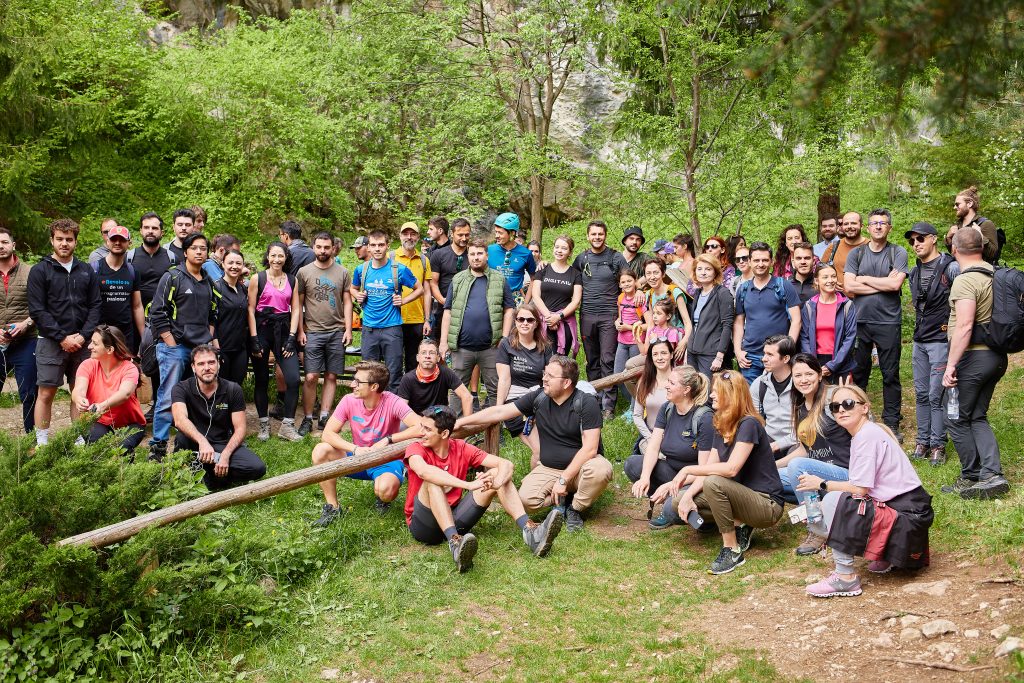
Funny fact, during the retreat, we all climbed a Via Ferrata route, and while hanging on high-altitude rocks, founders pitched their startups to each other or investors present at the event. I know of at least two investments that happened due to that experience.
We’ve had several startups that after graduating the program have launched in international markets and we believe that our approach to create an international experience and exposure had a significant contribution to it.
Ultimately, we realized that Rubik Hub could be relevant for startups outside Romania. The program is designed to happen mostly online, but even so, the international startups and some of the Romanian startups decided to relocate to Piatra Neamt and work from our hub during the summer. That gave us a great feeling of validation and growth.
Can you help us identify three key strengths of the Romanian entrepreneur?
An ability to see and address problems. We culturally tend to speak a lot about issues, but more and more of us are moving from a complaining attitude to a problem-solver mindset. So the fact we see the problems around us is becoming a strength when we try to solve them with business solutions!
I haven’t met a startup preferring to work with people of a specific gender, color, religion, nationality, etc. I believe the Romanian founders have what it takes to build diverse and well-balanced teams of people, focusing more on the value set and skills. This is a mindset providing high scalability potential.
And we are kind. Kindness can lead to a sustainable impact. I remember the MBA program I attended focused on setting the proper premises for a business to deliver value and positive impact to its employees, clients, partners, and environment. A positive effect will automatically come if you are kind and respectful to others. I believe CEE startups have what it takes to naturally become companies that care for people and the environment.
What is the general sentiment in the local ecosystem regarding the challenges we’ll face given the downturn? How do you expect it will affect innovation and prospects for early-stage startups to raise funds?
Right now, I don’t feel startups are scared or afraid. They continue to build and pitch.
That said, our efforts in the first three years of activity, when we had a handful of startups at a national level, were focused on bringing more investors, especially from outside the country, to show people there is enough capital. So we brought partners from Silicon Valley, Nordic countries, and Germany. Once the VCs and angel investors emerged, and financial capital was available to be invested, more startups got the courage to build on their ideas. Initially, they were students and graduates, but then more corporate professionals started switching careers to entrepreneurship.
I am afraid that this crisis will bring a lower investment appetite from private investors, more extended periods of analyzing a deal, and fewer tickets than before. You, as a startup, have to survive for a more extended period with the same ticket – you have to prolong the runway by being efficient with your costs. The size of the investment will also likely decrease. These trends will eventually impact the ecosystem, and may diminish the appetite for this risky path.
We already see this in the US, but not yet in Europe. I think Europe is also benefiting from the VC funded by the EU, where there is still money available and has to be deployed. We also see the rise of investment funds backed up by the European Commission that focus on specific regions. So when they ask for money from the EIF, they will commit to deploying capital in those regions. We are in discussion with these types of funds. So, not only will there be funds available for Romania as a whole, but there will be funds available for specific parts of the country.
What can we expect from Rubik Hub in the next five years?
We have built our programs to create solutions for the problems we have identified in the Romanian startup ecosystem. So, from day one, our growth was directly correlated with the ecosystem challenges we were willing to solve.
In the beginning, this was about inspiring collaboration and the community spirit, boosting confidence and the ambition to dream big, combined with practical experiences that will help founders to grow. Our approach in designing the solutions, the programs, had a funnel type approach.
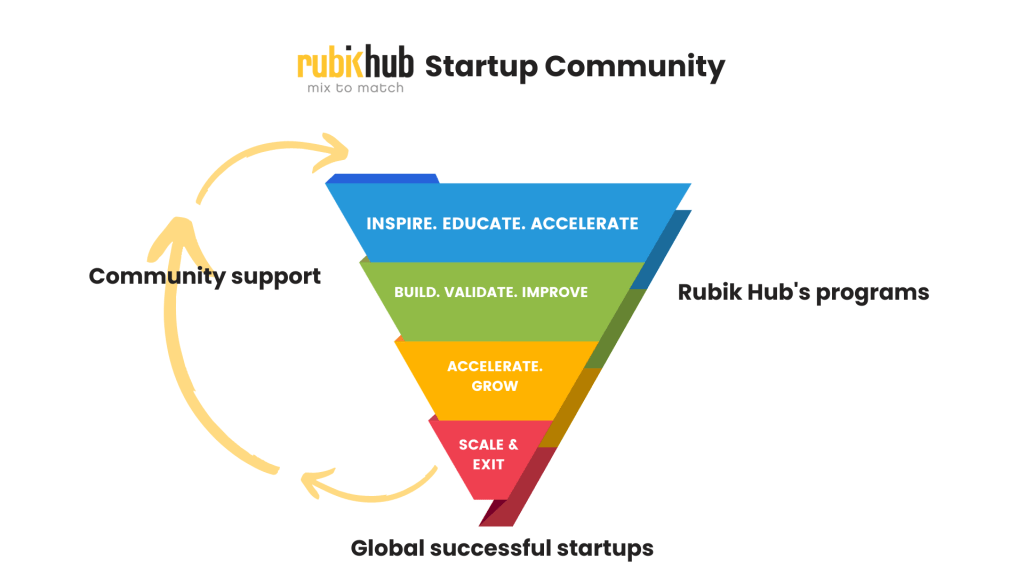
The programs for each stage of the funnel got developed in time, along with our team growth and understanding of the ecosystem’s needs.
This year, we launched two new programs as add-ons to the acceleration program. One is Rubik Alpha USA, to help startups launch on the US market. We also launched Link Point, the program assisting startups in reaching out to investors and getting matched with those focused on their respective verticals. We also help with the due diligence part, because the VC may get cold feet if the startup lacks legal understanding. So we grow with the ecosystem.
Part of our first intentions in Rubik Hub was to bring international knowledge and resources to the country, so we have analyzed and learned from thriving ecosystems and international startup programs. Now, we realize that we can become international ourselves. Very probably in the future, we will look at a scenario where Rubik Hub will be present in various capitals of Europe, building local ecosystems but also strengthening the European startup ecosystem over all. Europe will not be able to compete with other global ecosystems, unless it will come together to grow and act as ONE ecosystem.
. . .
If you want to catch up with Rubik Hub, you can do so at the Community & Demo Day in Iasi, on December 8th. This marks the end of two programs: the incubator RubikEDU and the international accelerator Alpha USA Startups, organized together with Global Kinetics from Silicon Valley. The Startups community is invited to watch online – register here.

